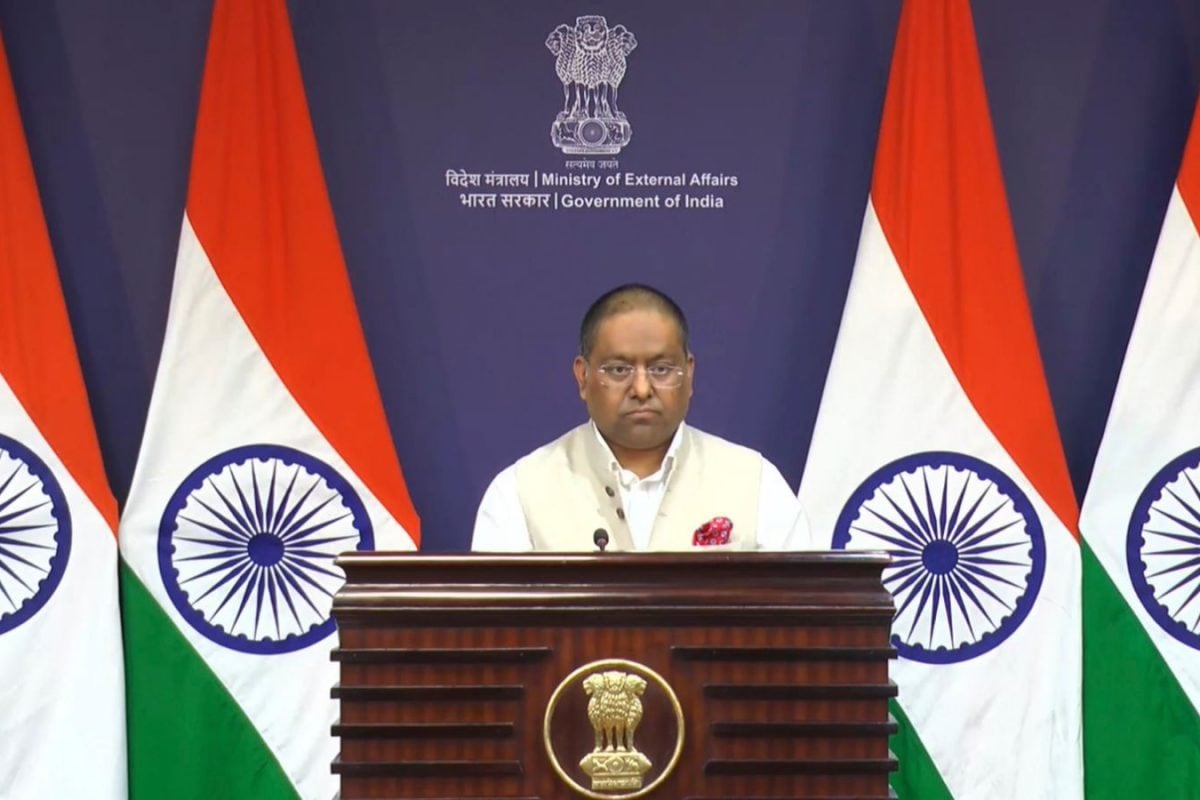

India has recently voiced its concerns regarding the democratic process in Bangladesh, emphasizing the importance of holding inclusive, free, and fair elections to truly reflect the will of the people. This call comes amidst a backdrop of political turbulence in the neighboring nation, including the ban on the Awami League, the party of former Prime Minister Sheikh Hasina, and shifting timelines for the next general elections.
New Delhi's stance reflects a broader apprehension about the curtailment of democratic freedoms and the shrinking of political space for opposition voices in Bangladesh. The Ministry of External Affairs (MEA) has expressed "serious concern" over the ban on the Awami League, highlighting the lack of due process in the decision. MEA spokesperson Randhir Jaiswal stated that India, as a democracy, is naturally concerned about the curtailment of democratic freedoms and shrinking political space.
India's call for inclusive elections underscores its desire for stability and democratic continuity in the region. It also highlights the challenges India faces in balancing its regional security interests with its commitment to democratic values. The MEA has repeatedly emphasized the responsibility of the interim government in Bangladesh to protect the rights of all minorities, as well as their properties and religious institutions.
The Awami League, a party with a long history in Bangladeshi politics, was banned by the interim government led by Prof. Mohammed Yunus. The interim government justified the ban by accusing the Awami League of severely squeezing Bangladesh's political space, compromising its sovereignty, and engaging in kleptocratic rule.
Responding to India's remarks, the press secretary of the Chief Adviser of Bangladesh interim government stated that everyone should respect the "sovereign" will of Bangladesh. They argued that the ban on the Awami League and its affiliates was necessary to safeguard national security and sovereignty.
The United Nations has also urged the interim government in Dhaka to refrain from taking steps that would disenfranchise large portions of the electorate. Concerns have been raised about the shifting timeline for the next general elections, with no clear date announced, raising alarm globally.
India's renewed emphasis on democratic processes in Bangladesh marks a shift from its previous stance of considering elections an internal affair of Bangladesh. This change in approach comes after the fall of Sheikh Hasina.
India's concerns echo a wider global alarm that Bangladesh's democratic fabric is unraveling under the interim leader Muhammad Ununice. As Bangladesh navigates this critical phase in its political history, the international community is closely watching to ensure that the upcoming elections are conducted in a manner that is truly inclusive, free, and fair, allowing the people of Bangladesh to freely exercise their democratic rights and choose their own future.